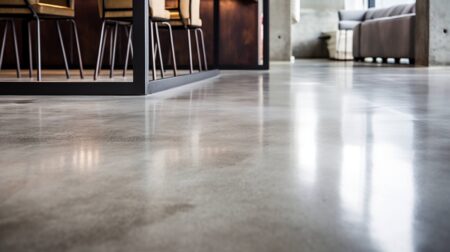
Installing new flooring can require a significant investment. As a home or business owner, you may wonder if your new floor is tax deductible. The answer depends on multiple factors, including the floor’s purpose, the type of property, and whether it qualifies as a repair or property improvement.
Valley Concrete Coatings & Polishing in Phoenix, AZ offers a range of services for concrete flooring, including sealants and epoxy or acrylic coatings. We want to give you information on the tax implications of new flooring to help you maximize potential deductions.
Tax Deductions for Flooring
The IRS allows taxpayers to deduct some expenses related to home and business improvements. Depending on the project, flooring might be considered a capital improvement, a repair, or a business expense. Each category has different tax rules.
Flooring Repairs
You may be able to deduct the flooring repair cost within the same year if it is a minor repair. The repairs must secure the property’s continued stability.
Flooring Improvements
If you install the flooring to increase property value, it may need to depreciate over time instead of being deducted for a single filing year. These improvements could reduce the capital gains tax you owe when selling your home.
Flooring Business Expenses
You may be eligible for tax deductions if you install new flooring in a rental or commercial building. There are different rules for business expense tax deductions.
Residential Flooring Tax Deductions
You usually cannot deduct the cost of new flooring for your primary residence. However, some exceptions to the rule could allow you to claim tax benefits.
Medical Necessity
Your new flooring, such as non-slip coatings, may qualify for a tax deduction for medical reasons. Under the IRS rules, you may be eligible for a medical home improvement deduction.
The flooring installation cost must be greater than the set portion of your adjusted gross income (AGI). You can only deduct the percentage that goes above your AGI. We offer non-slip additives to concrete floor coatings to help prevent falls.
Energy-Efficient Flooring
Although certain energy-efficient home improvements can qualify for tax deductions, the IRS rarely includes flooring. However, if the flooring improves insulation or is part of a radiant heating system, you can offset some costs.
Home Office Flooring
You may get a tax deduction for flooring installed in an area exclusively used for your business. The IRS calculates the deduction based on the percentage of your home used for the company. If your home office takes up 10% of your home, you may be able to deduct 10% of the flooring costs.
Rental Property Flooring
If you own rental properties and need to replace the flooring, the IRS considers it a rental property expense. You may seek tax deductions for flooring as part of a repair or improvement.
You can immediately deduct flooring repairs, such as replacing a rotting area. Installing new flooring throughout a rental unit will require waiting for depreciation.
Commercial Property Flooring Tax Deductions
You can often deduct flooring installation expenses for commercial properties, but the installation’s classification will determine how the IRS treats them. As a concrete flooring contractor, we advise you to research the IRS rules carefully.
Business Property Improvements
Installing epoxy or acrylic flooring in your business property typically qualifies as a capital improvement. According to the Modified Accelerated Cost Recovery System, non-residential flooring improvements generally have a depreciation period of 39 years.
Section 179 Deduction
You should study Section 179 of the IRS tax code to determine if your flooring installation qualifies. Section 179 allows you to deduct the full cost of some commercial property improvements in the year you complete them instead of waiting years for depreciation.
Bonus Depreciation
Businesses may be eligible for bonus depreciation, which allows you to deduct a big portion of the flooring installation costs in the first year. Bonus depreciation only applies to qualifying businesses and can provide immediate tax benefits for owners.
Flooring Installation and Capital Gains Tax
New flooring can impact your capital gains tax if you sell your home or business. The IRS considers flooring installation a capital improvement that adds to your property’s cost basis. A capital improvement can reduce your taxable profit, reducing your tax liability after the sale of your property.
Keep Detailed Records
It is essential to keep detailed records of your flooring installation. These records can help prove your eligibility for certain tax deductions.
- Receipts and invoices from the flooring company
- Proof of payment
- Documentation of flooring purpose
- Applicable tax forms related to deductions
- Photos of before, during, and after installation
The Importance of Consulting With a Tax Professional
Investing in epoxy or resin flooring is an exciting and beneficial upgrade for any residential or business property. You can transform your garage, basement, showroom, or commercial space.
Understanding the potential benefits of installing new flooring in your home or business is essential. We highly recommend consulting a tax professional since tax laws are complex and change frequently. An experienced accountant or tax professional can ensure you make the most of your flooring deduction. These professionals can help you with the following.
Deductibility
They can help determine if your new flooring qualifies as a repair, improvement, or business deduction. Ensuring the proper deductible will help you avoid problems with the IRS.
Depreciation Schedule
They can help you understand the depreciation schedule timeframe according to the MACRS or Section 179 method. A tax professional can help you select the best method for your situation.
Record-Keeping Requirements
Tax professionals can help ensure you have the proper documentation for tax deductions for flooring installation. You must have documentation to substantiate your tax deductions.
Bonus Depreciation and Tax Credits
Tax professionals can help identify any bonus credits or incentives that may apply to your situation. They will help ensure you get the most incentives possible.
Consulting with a tax professional can help you avoid missed opportunities or filing for credits you do not qualify for. They can help you ensure compliance with all IRS rules when installing your new epoxy or acrylic flooring.
Benefits of Epoxy and Acrylic Flooring
Installing epoxy or acrylic flooring has many other benefits besides the potential tax advantages. These floors transform any area, whether residential or commercial.
Epoxy and acrylic floors offer limitless color and addition options, allowing you to create your desired look. These floors are as beautiful as they are tough. They resist stains, chemicals, and abrasions, making them ideal for high-traffic areas.
They are also easy to clean because no grout lines or cracks can collect dirt and debris. These floors can withstand heavy equipment, vehicles, and foot traffic and retain beauty.
We can help you create a polished showroom look or a rugged, industrial-grade surface. Our team can offer advanced safety with additions like sand that make the flooring slip-resistant.
Valley Concrete Coatings & Polishing is a family-owned and -operated concrete coating company in Phoenix. We pledge your complete satisfaction and guarantee the highest knowledge and professionalism with our flooring services. We are also a female-owned business and a proud Women’s Association of Concrete Professionals member. Valley Concrete Coatings & Polishing is certified in SASE machines, ASL machines, Hi-Tech materials, and Ardex.
If you want to learn more about installing beautiful coatings on your concrete floors, contact our technicians at Valley Concrete Coatings & Polishing.










